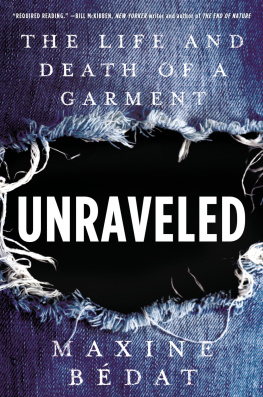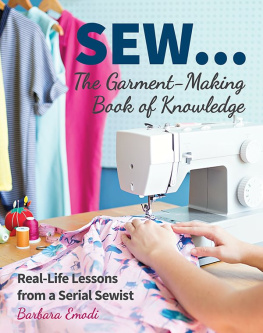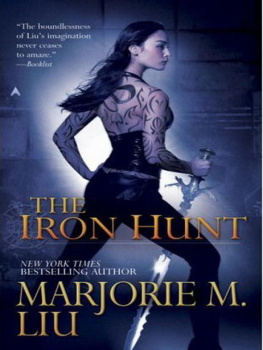Maxine Bedat - The Life and Death of a Garment
Here you can read online Maxine Bedat - The Life and Death of a Garment full text of the book (entire story) in english for free. Download pdf and epub, get meaning, cover and reviews about this ebook. year: 2021, genre: Politics. Description of the work, (preface) as well as reviews are available. Best literature library LitArk.com created for fans of good reading and offers a wide selection of genres:
Romance novel
Science fiction
Adventure
Detective
Science
History
Home and family
Prose
Art
Politics
Computer
Non-fiction
Religion
Business
Children
Humor
Choose a favorite category and find really read worthwhile books. Enjoy immersion in the world of imagination, feel the emotions of the characters or learn something new for yourself, make an fascinating discovery.
- Book:The Life and Death of a Garment
- Author:
- Genre:
- Year:2021
- Rating:3 / 5
- Favourites:Add to favourites
- Your mark:
- 60
- 1
- 2
- 3
- 4
- 5
The Life and Death of a Garment: summary, description and annotation
We offer to read an annotation, description, summary or preface (depends on what the author of the book "The Life and Death of a Garment" wrote himself). If you haven't found the necessary information about the book — write in the comments, we will try to find it.
The Life and Death of a Garment — read online for free the complete book (whole text) full work
Below is the text of the book, divided by pages. System saving the place of the last page read, allows you to conveniently read the book "The Life and Death of a Garment" online for free, without having to search again every time where you left off. Put a bookmark, and you can go to the page where you finished reading at any time.
Font size:
Interval:
Bookmark:
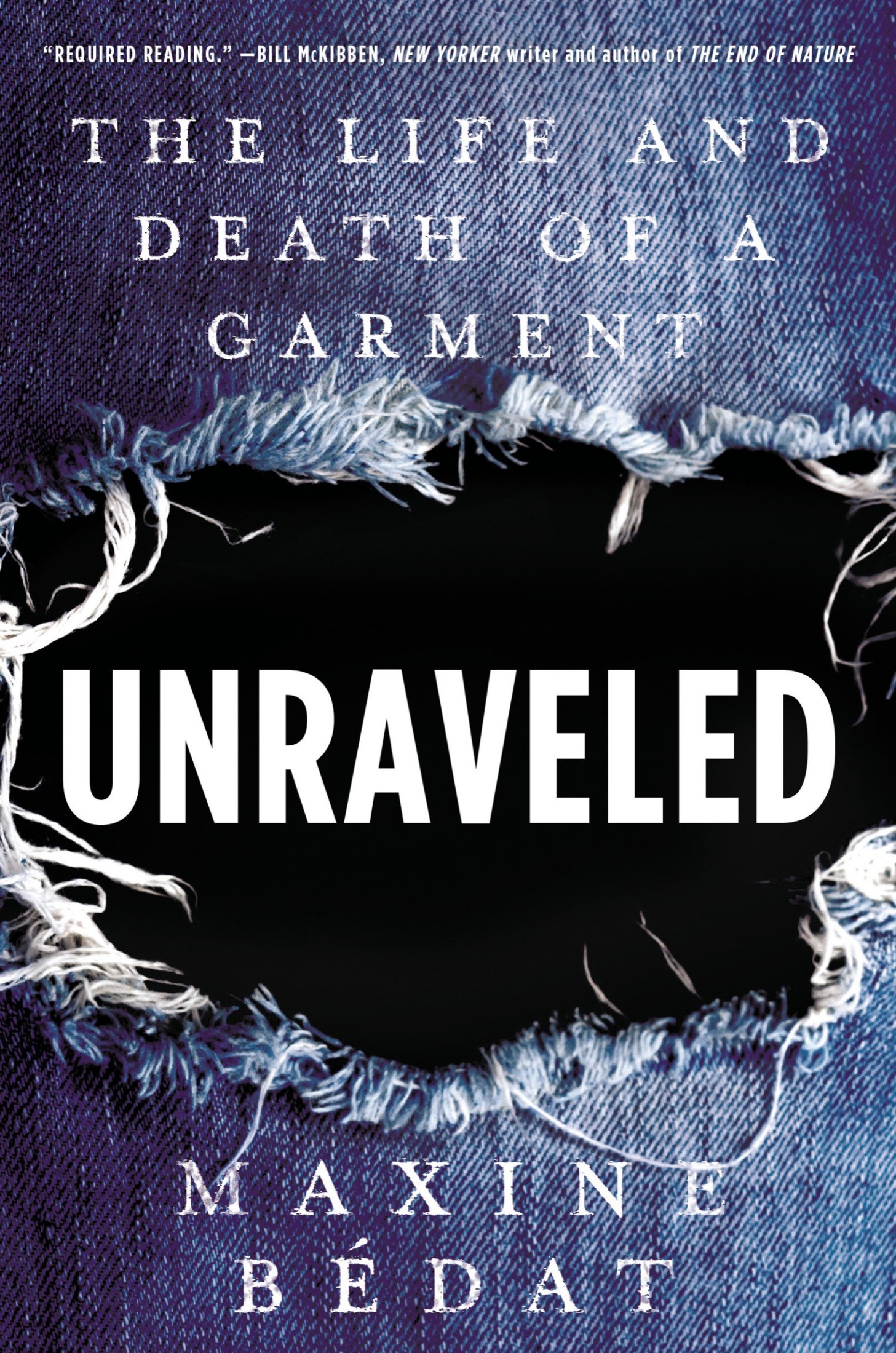
Additional praise for Unraveled:
The globalization of the fashion industry has fueled poverty reduction and economic growth in many parts of the world, but it has also left a trail of human suffering and environmental damage in its wake. This fascinating book holds a magnifying glass to the global division of labor to tell us about the full life history of the clothes we wear.
Dani Rodrik, Ford Foundation Professor of International Political Economy at the John F. Kennedy School of Government at Harvard University, author of The Globalization Paradox
You need to read this book. The fashion industry has become one of the great humanitarian crises of our time. Bdat pulls back the curtain on the industry with devastating insight, simultaneously offering a way forward to a future of industry without gross overconsumption and oppression.
John Mark Comer, pastor at Bridgetown Church, author of The Ruthless Elimination of Hurry
Captivating. With vibrant storytelling, Unraveled weaves together the pieces of a complex system that affects us all but that we cant see ourselves. A revolutionary read that captures both the problems and the solutions needed for a more equitable world.
Amber Valletta, supermodel and activist
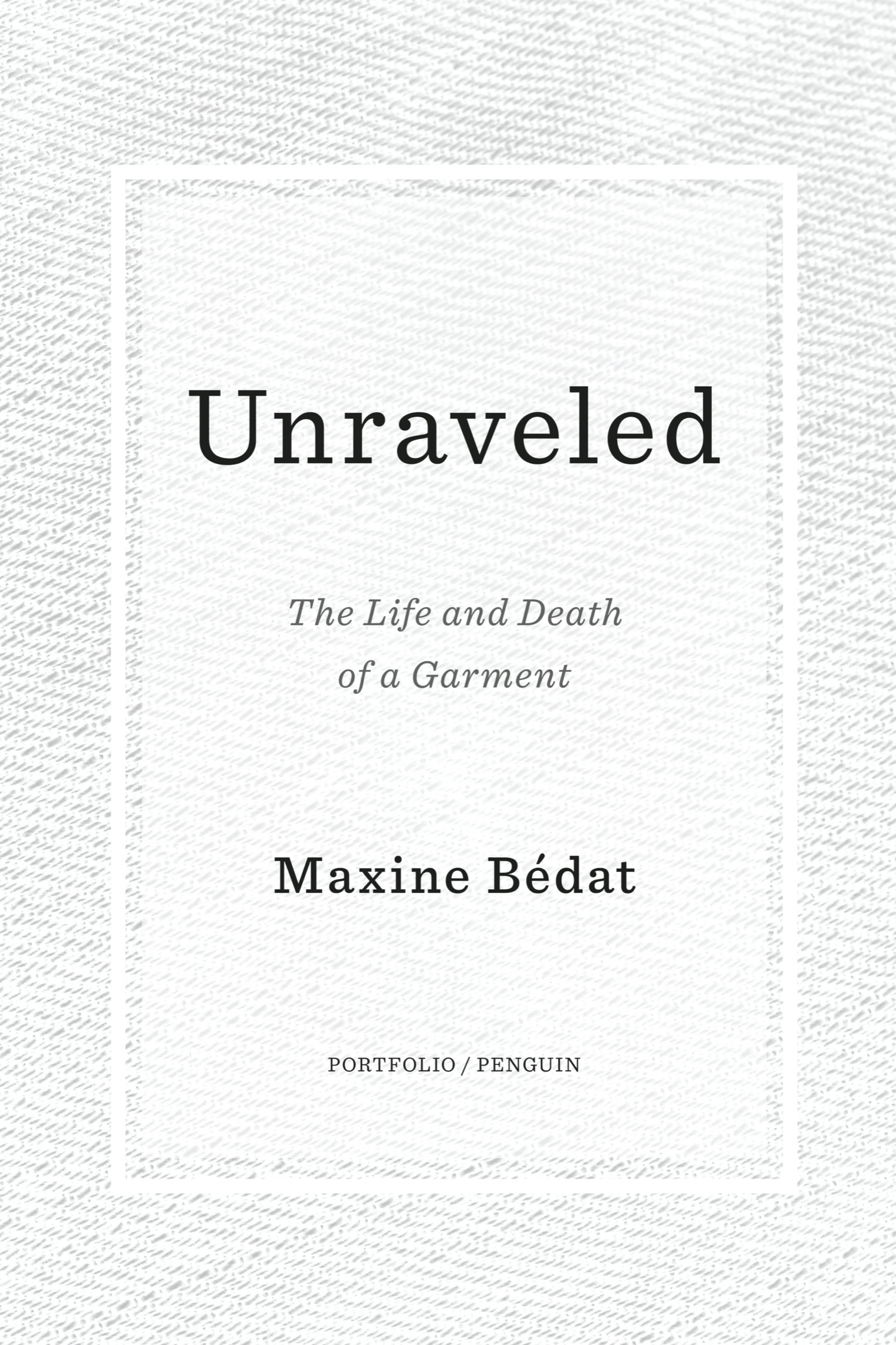

Portfolio / Penguin
An imprint of Penguin Random House LLC
penguinrandomhouse.com

Copyright 2021 by Maxine Bdat
Penguin supports copyright. Copyright fuels creativity, encourages diverse voices, promotes free speech, and creates a vibrant culture. Thank you for buying an authorized edition of this book and for complying with copyright laws by not reproducing, scanning, or distributing any part of it in any form without permission. You are supporting writers and allowing Penguin to continue to publish books for every reader.
Owing to limitations of space, illustration credits may be found on .
Images by author unless noted in the credits.
Library of Congress Cataloging-in-Publication Data
Names: Bdat, Maxine, author.
Title: Unraveled : the life and death of a garment / Maxine Bdat.
Description: New York : Portfolio, 2021. | Includes bibliographical references and index.
Identifiers: LCCN 2020048296 (print) | LCCN 2020048297 (ebook) | ISBN 9780593085974 (hardcover) | ISBN 9780593085981 (ebook)
Subjects: LCSH: Clothing trade. | Labor and globalization. | Business logistics.
Classification: LCC HD9940.A2 .B433 2021 (print) | LCC HD9940.A2 (ebook) | DDC 338.4/7687dc23
LC record available at https://lccn.loc.gov/2020048296
LC ebook record available at https://lccn.loc.gov/2020048297
Book design by Cassandra Garruzzo, adapted for ebook by Cora Wigen
Cover design: Sarah Brody
Cover image: Maonakub / iStock / Getty Images Plus
pid_prh_5.7.0_c0_r0
To my father, Keith, and Jennifers father, Kevin, who helped us believe in our own voices
And my daughter, Leontine, and the generations that follow
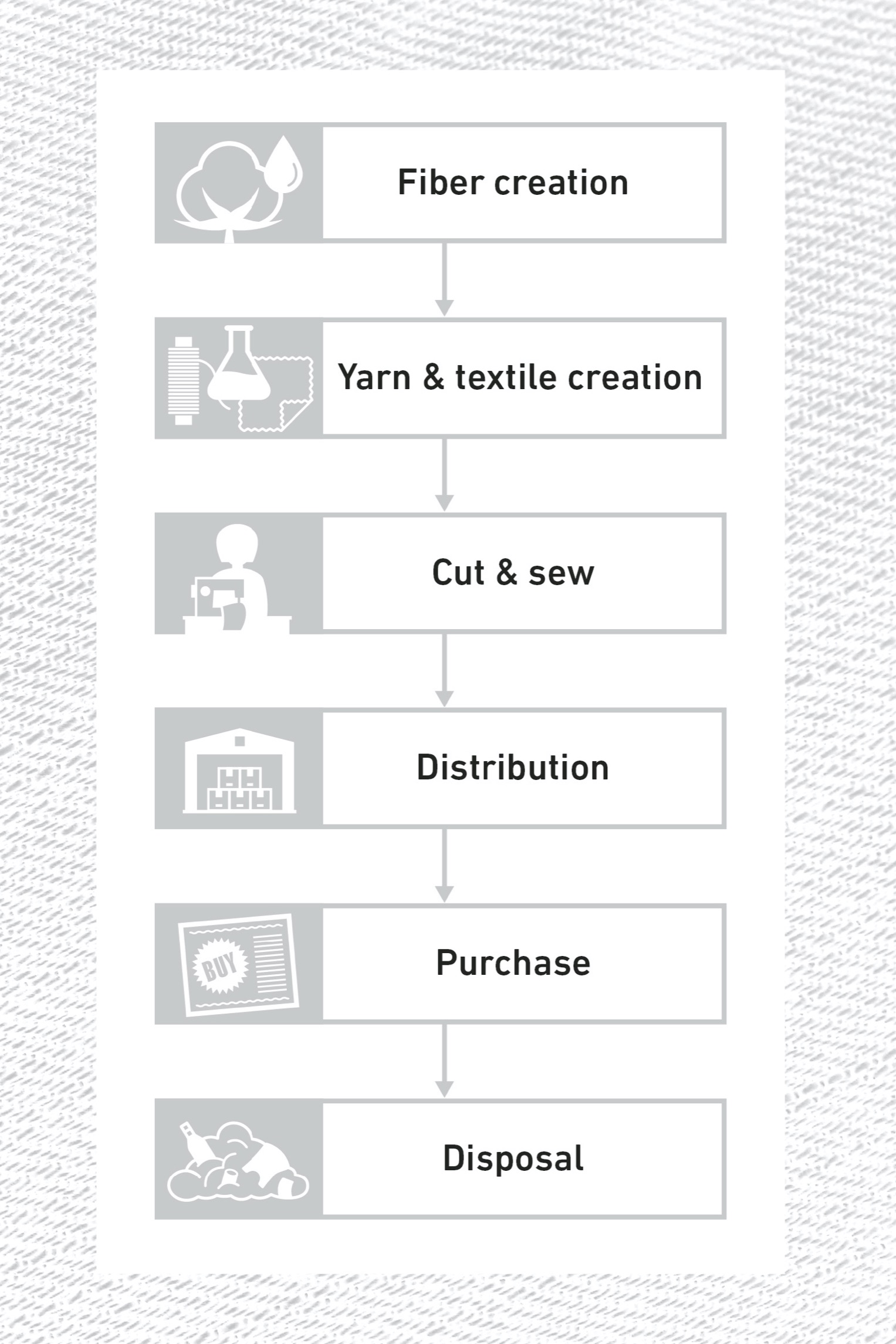
Billed as the Marketplace of the World, New Yorks Jacob Javits Center stood before me like a glass fortress. As a novice in the fashion world, I was intimidated by the prospect of entering the building for the 2013 MRKET menswear trade show, where buyers from across the country were descending to find the goods that would land on their shelves. I grew up in Minnesota, home of the Mall of America, the largest mall in the United States, so I thought I could handle retail on a scale as grand as this. But that morning I felt humbled by what seemed to be the aggregate of all the malls in the world, complete with the familiar convention center aroma of antifreeze and undertones of coffee and pizza grease.
My business partner and I were getting ready to launch our new ecommerce site for clothing and select homewares, Zady. We wanted to present about fifty piecesshirts, pants, and accessories for women and mencurated from brands that aligned with our philosophy and aesthetic. The goal was to unearth beautiful, artisanal products, so that day in September I was on a mission to find possible goods and brands for the site.
Approaching the enormous main atrium, I felt a chill set in, literal and metaphorical. The other buyers I could see were out for the kill, silently judging and scanning the racks of clothing and signage that stretched as far as the eye could see. Not quite knowing where to start, I walked the length of the space, stopping anytime a collection caught my eye. I approached the first sales representative with what I thought was a simple question: Can you tell me where your collection is made? He responded with a blank stare followed by a shrug of the shoulders, then averted his eyes. I couldnt believe it. Why wasnt he answering me? Didnt he know where his own goods were manufactured?
I continued down the aisle until another collection caught my eye. I asked the same question of the woman at the booth. Asia, she responded shortly, seemingly upset. What was with these people? Asia has forty-eight countries and 4.7 billion inhabitants, so while ever so slightly more specific than the first mans grunt, this information was not terribly helpful. I walked on. It didnt get better: Clothes, it turned out, were being made abroad, in the Orient, or to be super precise, China. What the hell? How did the people responsible for selling clothing to the entire US market not know something as basic as where that clothing was made? (Also, the 1960s called and wants its offensive language back.) Even saying something was designed in New York, I soon realized, was often code for made in China. After a long day trudging through Javits with zero business cards and not optimistic for Zadys future, I left frustrated, confused, and skeptical.
Having recently graduated from law school, I was not afraid of research, and quickly applied those skills to find companies that knew who made their clothes. In September 2013, we launched the business with diverse partners, including Imogene + Willie, a company cutting and sewing denim in Tennessee, and Clare Vivier, whose colorful bags were produced in Los Angeles. We interviewed the designers and those responsible for production to tell the story behind every piece we carried, an attempt to give the customer the novel experience of knowing who made their things, down to the individual. We embedded a map on our site to show where the products came from, educating customers more deeply than the brand reps at Javits.
We had thought it would be enough to explain where each article was madeas in, what the label inside the garment would say. But we soon realized that wasnt enough. Our cashmere sweater was Made in Italy, in that it was where the yarn was knit into a sweater. But the yarn was not spun in Italy and the goats whose wool fiber became yarn roamed the steppes of Mongolia (the cold weather of the steppes helps produce soft fibers). Some of the brands knew where they purchased their yarn or finished textiles, but that didnt mean they knew where those companies, in turn, had purchased the leather or cotton, wool or polyester fibers.
Font size:
Interval:
Bookmark:
Similar books «The Life and Death of a Garment»
Look at similar books to The Life and Death of a Garment. We have selected literature similar in name and meaning in the hope of providing readers with more options to find new, interesting, not yet read works.
Discussion, reviews of the book The Life and Death of a Garment and just readers' own opinions. Leave your comments, write what you think about the work, its meaning or the main characters. Specify what exactly you liked and what you didn't like, and why you think so.

